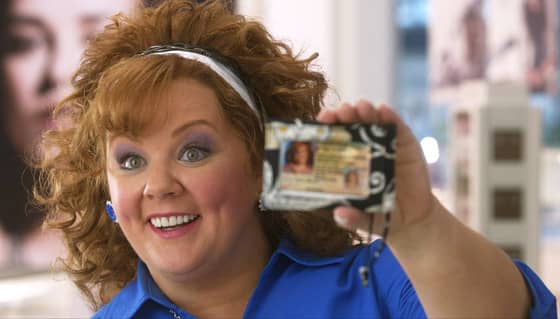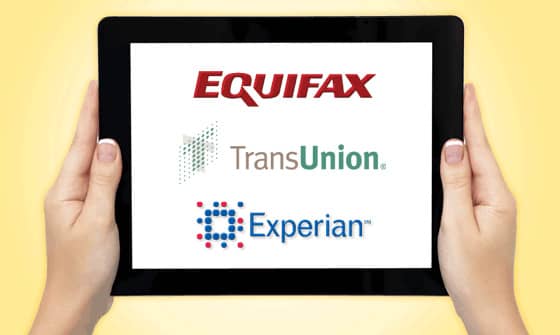

Credit commercials and advertisements on TV, radio and the Internet continually echo the importance of healthy credit.
While you may have received the message loud and clear — paying bills on time, maintaining a low credit utilization ratio and establishing a long and healthy credit history — others may not have the same understanding and respect for the all-important credit score.
Despite your due diligence, the irresponsible actions of others can leave your own credit vulnerable. To protect yourself from incurring penalties on your credit due to the carelessness of others, be aware of these common credit saboteurs and take appropriate action when necessary.
1. The Child

Many parents will add a child as an authorized user on a credit account, ensuring they have access to money in case of emergency or to help them start building a responsible relationship with credit.
While this might seem like a sensible strategy, it can prove dangerous to your own credit health. If your child abuses the privilege of being an authorized user, racking up high debt that you are unable to payoff, you’ll both take a hit to your score.
As an alternative, consider starting your child off with his or her own debit card. Debit cards impose a clear limit on how much money can be spent and have no bearing on credit.
2. The Parent

Parents with poor credit history should think twice before adding children as authorized users on their accounts — not for the sake of themselves but for the sake of their children.
If the account is consistently in the red, both the account holder (the parent) and the authorized user (the child) will suffer the consequences of a poor credit rating.
Rather than adding children as authorized users, set them up with their own accounts and emphasize the importance of the fundamental financials that will impact their future.
However, it should be noted not all creditors report authorized user accounts to credit bureaus.
3. The Irresponsible Co-signer

Once you establish a financial connection with someone by cosigning a loan, your own credit becomes vulnerable. If your friend, family member, spouse, child or whoever you consigned for becomes delinquent on their debt, you and your credit will be on the hook as well.
The risks of cosigning far outweigh the benefits. The best policy? Don’t do it.
4. The Former Spouse

Katie Holmes and Tom Cruise (“TomKat”) separated in 2012.
Divorce settlements tend to focus on dividing assets: cars, houses and other tangible things. Unfortunately credit is often overlooked during this emotional and complicated process.
To make sure your divorce settlement doesn’t end with your credit destroyed, stay on top of all bills throughout the proceedings and make sure you, your former spouse, the courts and lawyers are all maintaining your credit as a priority.
Close joint accounts or switch them over to one namem and make a plan to deal with any joint assets (like the home) or liabilities (like a car loan).
You might even consider setting up a fraud alert to protect yourself from an angry former spouse who has access to all of your personal information. You don’t want anyone opening up new credit and racking up debt in your name.
5. The Identity Thief

The frequency of identity theft and fraud seems to be increasing every day. In addition to draining your bank accounts, racking up charges on your credit cards and opening accounts under your name, hackers and identity thieves can wreak havoc on your credit score that’ll have a far more lasting and damaging impact than a few false charges.
In addition to protecting your information with paper shredders and airtight account passwords, keep track of your financial history by checking your bank accounts, credit card statements and credit reports frequently for any unusual activity.
6. The People at the Credit Reporting Agencies

A study by the Federal Trade Commission in 2013 found 5 percent of consumers had errors on one of their three major credit reports. You don’t want to wind up paying a higher rate on everything from auto loans to insurance for the rest of your life just because of a mistake made by someone else.
Check your credit reports regularly. Once you spot a mistake, you can work with the credit reporting company to fix it.
Photo credits: huffingtonpost.com, usnews.com, depaul.edu, thelmagazine.com, credit.com
Advertiser Disclosure
BadCredit.org is a free online resource that offers valuable content and comparison services to users. To keep this resource 100% free for users, we receive advertising compensation from the financial products listed on this page. Along with key review factors, this compensation may impact how and where products appear on the page (including, for example, the order in which they appear). BadCredit.org does not include listings for all financial products.
Our Editorial Review Policy
Our site is committed to publishing independent, accurate content guided by strict editorial guidelines. Before articles and reviews are published on our site, they undergo a thorough review process performed by a team of independent editors and subject-matter experts to ensure the content’s accuracy, timeliness, and impartiality. Our editorial team is separate and independent of our site’s advertisers, and the opinions they express on our site are their own. To read more about our team members and their editorial backgrounds, please visit our site’s About page.




